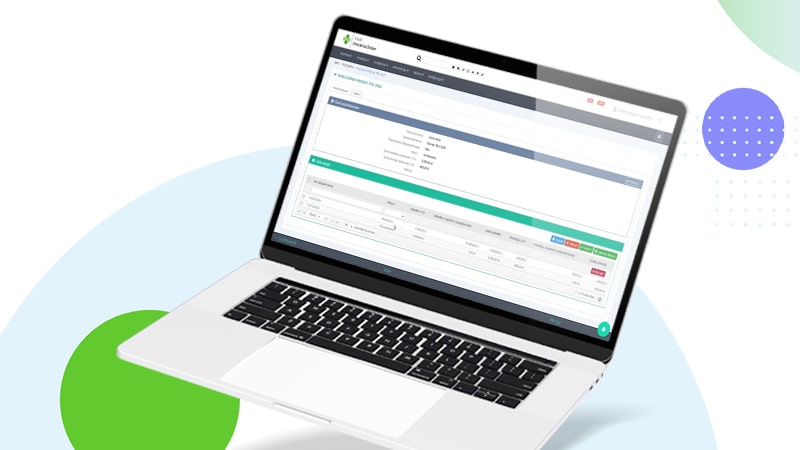Both a broker and an insurance agent perform their duties on the basis of powers of attorney granted to them. However, it is worth noting that these powers of attorney differ primarily in terms of the entity that grants them. According to Article 21 of the Insurance Distribution Act of 15 December 2017, an insurance agent obtains a power of attorney in writing from the insurance company for which they provide their services. It primarily defines the scope and area of the agent’s activity. A broker, on the other hand, as stipulated in Article 27(1) of the said Act, obtains – also in written form – a power of attorney from the client on whose behalf they will perform brokerage activities. Persons acting as brokers or agents are obliged to make the power of attorney available at the time of performing the first act included in the scope of their duties. Thus, a broker shall provide the power of attorney granted to them by a client to the insurance company with which they intend to negotiate on the client’s behalf. An agent shall provide the power of attorney granted by an insurance agency to a client interested in the offer of the agency they represent.
An insurance agent
The insurance agent’s duties and rights are set out in the Act of 22 May 2003 on Insurance Intermediation. The agent is a representative of a given insurance agency and is responsible for obtaining and signing contracts with customers. The agent’s services are usually used by small companies and individuals, as these entities are most often interested in low premiums. These are more likely to be offered by an agent, for instance by providing an attractive pool of discounts. The agent’s work for the customer ends with the conclusion of the contract, which also means that their services are less frequently sought by larger companies looking for help and advice in managing their contracts.
An insurance broker
A broker is an intermediary who concludes insurance contracts on the basis of a power of attorney granted to them by the client. They may be confused with a multi-agent, as they provide services to several insurance agencies, yet it is worth remembering that they still report to them. A broker’s tasks include preparing slips, negotiating terms and conditions as well as analysing offers, developing a client portfolio, and data management, including preparing reports, studies or administering documentation.
Differences in powers between an agent and an insurance broker
A broker provides services until the termination of the applicable power of attorney. Moreover, they ensure that the terms of the contract are fulfilled and act as an advisor and representative in the event of a claim for compensation. This is why large companies in need of a good specialist, support or service willingly seek brokerage services. It is also worth mentioning that an agent does not bear civil liability for the damage caused – the principal, in this case the insurance company for which they work, is responsible for them. It is different in the case of a broker, who is liable for their own actions. The fact that a broker must have much higher qualifications than an agent means that the number of people practising this profession is much smaller than in the instance of insurance agents.
What does a broker’ s power of attorney involve?
A power of attorney, also referred to as an “order” or “broker’s letter”, is a written authorization of a broker to perform brokerage activities regarding the insurance distribution pursuant to Article 4(4) of the Act of 15 December 2017 on Insurance Distribution. The power of attorney, in the form of a contract, should include the seal and signature of the principal and the signature of the broker. It obliges to maintain professional secrecy related to the transmission of all information in the course of cooperation and should be drawn up in two copies – one for each party. It requires the broker to act with all due diligence and, what is worth mentioning, does not give the broker the power to represent the principal in court proceedings or incur liabilities on the principal’s behalf. It also stipulates that the principal may revoke the power of attorney at any time.
What is the brokerage service process and how does it differ from an agent service?
Brokerage activities include many tasks, such as preparing brokerage slips, but also, as has already been emphasised, cooperating with the client after the conclusion of the contract. It is crucial for a broker to stay in constant contact with clients, and it is worth adding here that they do not work for one, but for many entities. Due to the great responsibility and wide scope of the broker’s duties, more and more tools dedicated to brokers or brokerage firms are available on the market, facilitating their work organisation in terms of creating reports and analyses, as well as accounting and invoicing.
Particularly noteworthy are modern tools such as CRM software for insurance brokers, in which people performing brokerage activities increasingly invest. Thanks to this, the execution of duties can proceed more efficiently, and all information collected and organised in one place facilitates the work with the client.
Although the function of a broker involves a certain amount of responsibility and strict compliance with procedures, access to increasingly innovative and specialised systems for insurance brokers allows for efficient work organisation, as well as provides invaluable support in day-to-day operations.



